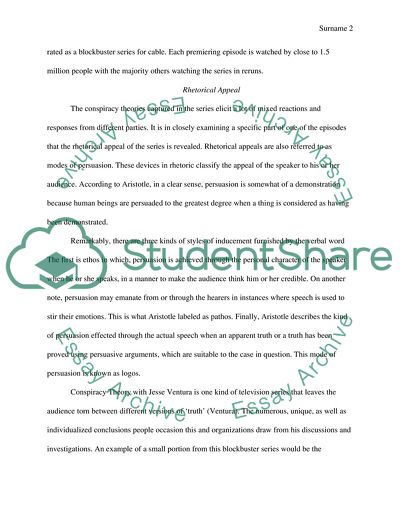Cite this document
(Rhetorical Analysis of Television Series Conspiracy Theory with Jesse Essay Example | Topics and Well Written Essays - 1250 words, n.d.)
Rhetorical Analysis of Television Series Conspiracy Theory with Jesse Essay Example | Topics and Well Written Essays - 1250 words. https://studentshare.org/visual-arts-film-studies/1809530-conspiracy-theory
Rhetorical Analysis of Television Series Conspiracy Theory with Jesse Essay Example | Topics and Well Written Essays - 1250 words. https://studentshare.org/visual-arts-film-studies/1809530-conspiracy-theory
(Rhetorical Analysis of Television Series Conspiracy Theory With Jesse Essay Example | Topics and Well Written Essays - 1250 Words)
Rhetorical Analysis of Television Series Conspiracy Theory With Jesse Essay Example | Topics and Well Written Essays - 1250 Words. https://studentshare.org/visual-arts-film-studies/1809530-conspiracy-theory.
Rhetorical Analysis of Television Series Conspiracy Theory With Jesse Essay Example | Topics and Well Written Essays - 1250 Words. https://studentshare.org/visual-arts-film-studies/1809530-conspiracy-theory.
“Rhetorical Analysis of Television Series Conspiracy Theory With Jesse Essay Example | Topics and Well Written Essays - 1250 Words”. https://studentshare.org/visual-arts-film-studies/1809530-conspiracy-theory.


